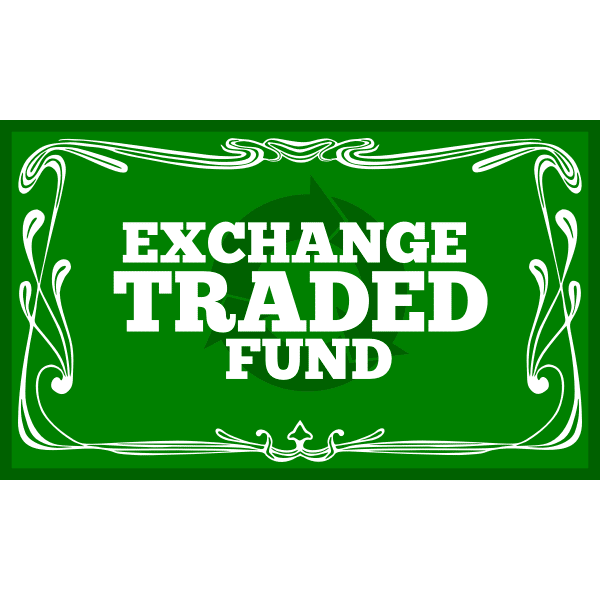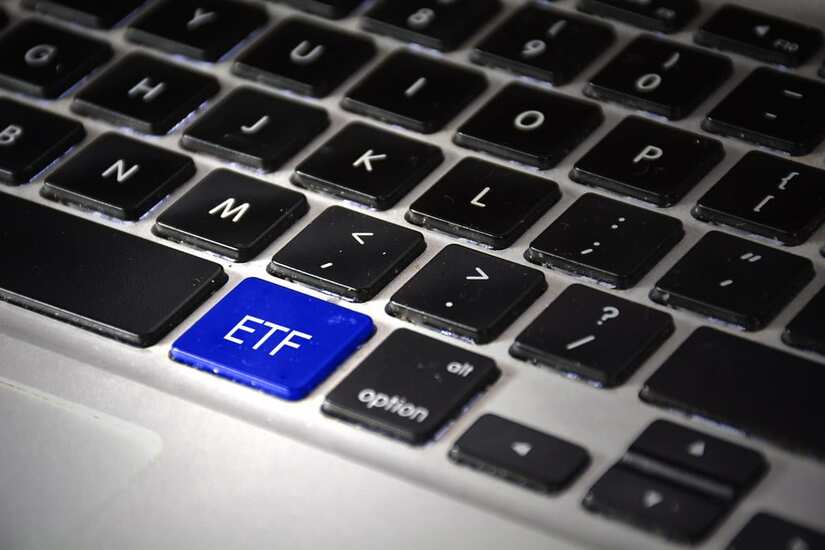16 Top Singapore ETFs
Invest in Singapore’s growth with the top Singapore ETFs offered by reputable providers.
If you have any questions or want to invest as an expat or high-net-worth individual, you can email me (advice@adamfayed.com) or use these contact options.
Table of Contents
Introduction
Let’s discuss some of the top Singapore ETFs on the Singapore Stock Exchange (SGX).
Retail investors can employ exchange-traded funds (ETFs), a well-liked investment instrument, to meet their financial objectives.
ETFs can offer investors financial gains, allowing them to increase their wealth with the appropriate investing plan. Some investors utilize ETFs as a source of passive income since some of them regularly provide dividends.
If you are new to ETF, it is best that you speak first with a financial planner.
How To Invest In Singapore ETFs?
The most popular method of investing in ETFs is through a stock brokerage account, which is comparable to how Singaporeans purchase and sell stocks.
There are 57 ETFs listed in Singapore, according to the Singapore Exchange (SGX). Due to some ETFs’ dual currency listings, the actual figure could be lower.
In addition to SGX, the majority of local stock brokerage accounts also allow us access to other significant stock exchanges abroad. As a result, you may invest in ETFs that are listed on foreign markets, with Hong Kong and the United States being the most well-known.
Regular Shares Savings (RSS) schemes in Singapore allow for the purchase of ETFs as well. At the moment, Singapore has 4 RSS providers, some of which also let us buy individual stocks or ETFs that are listed abroad.
Investing through Singaporean robo-advisory platforms is a third way for investors to obtain exposure to ETFs. There are presently at least 11 robo-advisory platforms operating in Singapore, and most of them use ETFs to deliver their services.
The ETFs used by robo-advisory platforms are often exposed to broad indices listed in the US.

Why Invest In The Top Singapore ETFs?
You are aware that you may purchase stocks or shares in corporations, correct?
For instance, you may purchase a large number of Singtel shares with the anticipation that their value would rise over time or that Singtel will pay you generous dividends from their future profits.
The issue is that the Singapore stock exchange now lists more than 800 firms. Aside from that, you have a life to live. How, in your opinion, can you do due diligence on companies as potential investment prospects to invest in?
You can’t, that’s for sure. Because of this, some investors choose to invest in entire sectors, asset classes, or even entire economies rather than trying to bet on one mega firm. By purchasing index fund ETFs rather than individual equities, you achieve this.
An index fund often tracks a stock exchange index.
The S&P 500 index, which measures the 500 largest businesses on the US stock exchange, is arguably the most well-known index.
The top 30 firms on the Singapore Exchange are tracked by the Straits Times Index, which mostly includes dependable “blue chips” like DBS, Singtel, Keppel, and CapitaLand.
There are countless indices available. Some concentrate on geographic areas (like China), sectors (like technology or real estate), asset classes (like bonds), and investment results (e.g. dividend yield).
What Are The Benefits Of Investing In Singapore ETFs?
The process of opening an account to trade ETFs is simple. The market has been welcomed by online brokers, and while not all of them provide ETFs, the majority of the more reliable ones do.
A useful location to check for the details you need to create a shortlist of contenders for your investment is this list of reputable brokers.
When compared to certain more turbulent markets, ETFs are thought to be a relatively low-risk investment, and opening an account can take just a few minutes. Additionally, the registration procedure is entirely online.
Diversification
ETFs can assist reduce risk after they are set up by allocating capital among several companies.
By holding a single stake in an ETF, you may skip the headache of purchasing each company separately and take a position in bonds for commercial real estate, high-dividend Singapore stocks, or stocks connected to the gold market.
Cost-Effective
Although they don’t actively manage the portfolio, the ETF manager is in charge of making sure the companies in the basket adhere to the overall investing objective. ETFs are relatively affordable, which is a wonderful feature of this passive management strategy.
In contrast to managed funds, which depend on a person or investing team to make the right judgments but with no assurances that they will, this is especially true.
Savings Plans
They’re ideally suited for routine investments, and many people put money in them via a monthly payment schedule.
As it smooths out some of the peaks and valleys that naturally occur in short-term share price movements, drip-feeding funds into the market can lead to less volatile investment results.

16 Top Singapore ETFs
1. SPDR Straits Times Index ETF (SGX: ES3)
The SPDR STI ETF (ES3), which was the first ETF to be introduced locally and is managed by State Street Global Advisors (SSGA), is one of the top Singapore ETFs.
It monitors the performance of the Straits Times Index, one of the benchmark indices that are well recognized and which monitors the performance of the 30 biggest companies listed on the Singapore Exchange.
By investing in index equities with weightings that are comparable to those in the index, the fund hopes to match or mimic the performance of the STI.
STI is tracking the performance of the Straits Times Index, one of the benchmark indexes that are well recognized and which monitors the performance of the 30 biggest firms listed on the Singapore Exchange.
Consequently, as an investor, you will benefit from a diversified exposure to Singapore’s blue-chip businesses. Additionally, it won’t cost you anything to take part in the nation’s general progress.
As of April 17, 2002, the fund has been listed on Singapore’s Exchange Securities Trading Limited, giving it a lengthy history. Additionally, it has favorable liquidity, with daily trades of more than S$5 million.
The fund has significant holdings in the following stocks: Jardine Matheson Holdings Limited, DBS Group Holdings, and United Overseas Bank Ltd. (Singapore).
By fund size, which is now $1,710.67 million at Singapore Dollars, the SPDR STI is the most popular fund. The fund appeals to investors looking for a secure investment environment with its 0.3% fee ratio.
2. Lion-OCBC Securities Hang Seng Tech ETF (SGX: HSS)
In December 2020, the Singapore Exchange launched the Lion-OCBC Securities Hang Seng Tech ETF, one of the top Singapore ETFs, in both USD (SGX: HSS) and SGD (SGX: HST).
By investing in all of the underlying index companies, this ETF’s primary goal is to mirror the performance of the Hang Seng Tech Index (before accounting for fees).
The top 30 technology businesses in Hong Kong are represented by the index, which is calculated and produced by Hang Seng Indexes Ltd.
Market capitalization is calculated using share price and market share data by the free-floating Hang Seng TECH Index. As a result, the market capitalization has an 8% weight in the constituents’ unique weighting.
These businesses operate in fields connected to technology, including e-commerce, cloud computing, fintech, and digital technology.
The index includes businesses like Xiaomi, Huawei, Oppo, Tencent, Meituan, and Sunny Optical.
The innovative nature of these technology themes gives them the potential to yield substantial profits.
Given that the trading lot size starts at 10 units, this ETF, which is more USD-focused, is a decent choice for novices.
3. SPDR Gold Shares ETF (SGX: O87)
The SPDR Gold Trust, one of the top Singapore ETFs, is a stand-alone fund created in accordance with New York State law with the purpose of holding gold bullion and issuing SPDR Gold Shares.
The shares are exchanged on the Singapore Exchange Securities Trading Limited, the Stock Exchange of Hong Kong Limited, and the New York Stock Exchange (NYSE) (SGX-ST).
The primary goal of the distinctive SPDR Gold Shares ETF is to monitor gold market values.
For cautious investors who worry about the volatility of the stock market, it is an excellent option.
Therefore, investing in gold gives your money a secure foundation.
The fact that HSBC Bank serves as the primary custodian for the SPDR Gold Trust’s gold holdings is another crucial aspect of the SPDR Gold Shares ETF.
This ETF has the advantage of offering investors smaller and more cheap units than other variations, which may require vaults to keep your precious metal.
Because of this, novices should definitely consider it.
4. SPDR S&P 500 ETF (NYESEARCA: SPY)
The SPDR® S&P 500® ETF Trust, one of the top Singapore ETFs, aims to offer investment outcomes that, before expenditures, usually correspond to the yield and price performance of the S&P 500® Index.
The S&P 500 Index is a large-cap, diversified U.S. index that includes stocks from all eleven GICS sectors.
The S&P 500 Index consists of 500 carefully chosen equities, all of which are traded on the NYSE Arca, and it includes companies from over 25 different industrial sectors.
5. Phillip Sing Income ETF (SGX: OVQ)
Investors can broaden their options beyond conventional equities, bonds, and gold investments with the Phillip Sing Income ETF (OVQ), a REIT ETF. It is among the newest ETFs, having gone public on October 29, 2018.
The index’s objective is to monitor the finest businesses with strong and stable financial histories.
The ETF, which is overseen by Phillip Capital Management, primarily invests in blue-chip equities that are traded on the Singapore Exchange.
Singapore dollars are used for trading because the equities are listed on the SGX-St. A 0.7% annual restriction is also placed on the expenditure ratio.
In the Singapore market, the fund ensures liquidity, transparency, and diversity.
A semi-annual dividend distribution is also included, in addition to a high-quality, reliable income.
Finally, investors can receive a strategic beta in-stock selection, concentrating on dividend yield, business quality, and financial soundness.
6. Nikko AM Singapore STI ETF (SGX: G3B)
The Nikko AM Singapore STI ETF’s investing goal is to closely mimic the performance of the Straits Times Index (STI) before fees.
The top 30 listed businesses on the SGX-ST Mainboard are represented by the Straits Times Index, which is compiled and computed by FTSE International Limited. These companies are listed in order of complete market capitalization.
7. Nikko AM SGD Investment Grade Corporate Bond ETF (SGX: MBH)
The Nikko AM SGD Investment Grade Corporate Bond ETF, one of the top Singapore ETFs, is the first ETF to provide investors with simple access to investment-grade corporate bonds denominated in dollars in tiny, cost-effective units.
The objective of the fund is to track the performance of the iBoxx Non-Sovereigns Large Cap Investment Grade Index while providing investors with a diverse selection of corporate bonds issued by high-calibre businesses.
As a result, you may invest with confidence as evidenced by investment-grade rating reports that demonstrate bonds have a lower default risk.
On August 27, 2018, the fund was launched on the Singapore Exchange. It distributes dividends twice a year.
The fund manager, however, has the last say on this. In addition, the fund now has a value of S$602.25 million with 591,028,600 units (as of last year).
Its remarkable cost ratio of 0.3% has been maintained despite the fact that it is a new product and smaller than the SPDR.
8. NikkoAM-StraitsTrading Asia ex Japan REIT ETF (SGX: NIKK)
The primary goal in terms of investing NikkoAM-StraitsTrading Asia ex Japan REIT ETF, one of the top Singapore ETFs, is to closely mimic, before fees, the performance of the FTSE EPRA Nareit Asia ex Japan REITS 10% Capped Index.
A portion of one of the most popular worldwide benchmarks for listed real estate, the FTSE EPRA Nareit Global Real Estate Index Series, was utilized to create the FTSE EPRA Nareit Asia ex Japan REITs 10% Capped Index.
The Index is a tradable index that includes market capitalization-based components from both developed and developing nations in the Asia ex Japan region.
Only firms that meet certain trading liquidity requirements are included in the selection process and are recognized as REITs by international standards.
It is intended to reflect the performance of qualifying REITS from Thailand, China, India, Hong Kong, Indonesia, Pakistan, Malaysia, Philippines, South Korea, Singapore, and Taiwan.

9. Xtrackers MSCI Singapore UCITS ETF (SGX: o9a)
The Xtrackers MSCI Singapore UCITS ETF, one of the top Singapore ETFs, mainly invests in Singaporean stocks. The fund then reinvests its dividends.
The fund follows the performance of the top equities from 23 developed nations as measured by the MSCI index. It also monitors the operation of both large and mid-cap firms on the Singapore market.
Based on the MSCI Global Investable Market Index (GIMI) concept, the index currently comprises 19 equities.
It is important to remember that mid-cap firms are now experiencing growth.
As a result, it is a great choice for investors searching for businesses that will expand over the next several years.
10. iShares USD Asia High Yield Bond Index ETF (SGX: O9P)
In order to provide investors with the chance to purchase bonds issued by the most successful corporations, the iShares USD Asia High Yield Bond Index ETF was introduced in December 2011.
It provides investors with some of the highest dividends and interest rates available.
This fund also keeps track of the performance of the Bloomberg Asia High Yield Diversified Credit Index, which covers high-yield bonds issued by Asian governments and corporations other than Japan.
The Wynn Macau Casinos Celestial Miles Limited, the Industrial and Commercial Bank of China (ICBC), and the Islamic Republic of Pakistan are a few examples of businesses that issue high-yield bonds.
11. ICBC CSOP FTSE Chinese Government Bond Index ETF US$D (SGX: CYB)
In September 2021, the ICBC CSOP FTSE Chinese Government Bond Index ETF was introduced to provide investors a diverse portfolio in which to place their money.
Chinese government bonds of investment-grade A1 are mostly included in the index.
This indicates that the ETF has a sizable holding of Chinese government bonds.
Due to the favourable rates offered by Chinese government bonds, the fund is particularly well-liked by investors.
For instance, the fund generated a return of 6.321% in 2021 despite the COVID-19 pandemic’s impacts.
12. Lion Phillip S-REIT ETF (SGX: CLR)
Despite the fact that REITs are well-liked by dividend investors because of their high yields and dividend distributions, their stability is based on market and international conditions.
You have the option to rent out the properties included in the REIT portfolio as an investor. Dividends are another possible and guaranteed source of income for you.
Lion Phillip S- REIT ETF is one of the three REIT ETFs listed and accessible on the Singapore market.
Despite being smaller than the Nikko AM Reit ETF in size, it is nonetheless a well-liked investment due to its trading value of more than S$1 million.
Lion Phillip S- REIT ETF is also one of the top Singapore ETFs and is one of the most well-liked funds on the market today. The fund concentrates on some of Singapore’s highest-yielding REITs.
For instance, it overcame the COVID-19 pandemic’s negative effects and attained a high dividend yield of 6%.
The Lion Phillip S-REIT ETF Fund, one of the top Singapore ETFs, is distinctive in allowing investors to purchase appealing S-REITs. As a result, you as an investor may profit from a well-balanced SREIT portfolio mix and generate significant dividends.
The Morningstar Singapore REIT Yield Focus Index, which measures the performance of Singapore’s top businesses, is what the fund follows.
Leading provider of investment analysis, MorningStar is well known for its expertise in mutual funds and ETFs.
With this ETF, you may invest and earn value from Singapore’s top 25 performing REITS.
The expenditure ratio for REITs is greater than average at 0.54%, yet they nonetheless provide substantial returns quickly.
13. PHLP AP DIV REIT (SGX: BYJ)
The PHLP AP DIV REIT ETF, one of the top Singapore ETFs, tracks an index that encompasses more than 70% of all REITs in Asia Pacific (apart from Japan) and offers the possibility to receive dividends from the top real estate companies in the area.
To better achieve its goal of offering relatively high income and moderate capital growth, the fund’s underlying assets include positions in 30 of Asia Pacific’s highest dividend-paying REITs.
Travel and leisure pursuits are anticipated to rebound, despite the pandemic’s negative effects on retail and hospitality. This fund may explode once they do.
14. ABF Singapore Bond Index Fund (SGX: A35)
Investors who are risk averse and seek to avoid the harsh reality of a stock market crash find bonds to be appealing.
A well-known fixed-income vehicle that protects investors from investment risk is the ABF Singapore Index Fund.
You may invest in high-quality government-linked bonds with the ABF Singapore Index Fund, including Temasek Holdings Bond and Singapore Savings Bond.
Due to its strong connection to government bonds, the fund has demonstrated its ability to hold up well in erratic market circumstances. As a result, it is a fantastic diversifier that reduces the volatility of the equities market.
This ETF, which is one of the top Singapore ETFs, provides a cluster purchase on a number of bonds issued by highly reliable organizations, including governmental organizations like HDB and LTA.
Although the returns are not quite as high as those on REIT bonds, you are certain to get the bond coupons.
The cost ratio of the fund is 0.25%, which guarantees investors better and larger returns on the composition of their portfolios.
Since its inception, the fund has generated an average return of around 2.8%.
15. IS ASIA BOND S$D (SGX: QL2)
The IS ASIA BOND ETF, which tracks the JP Morgan Asia Credit Index, holds securities from a number of governments, quasi-governments, and corporations throughout Asia (apart from Japan).
This fund, whose base assets are bonds, might assist balance portfolios that have an excessive exposure to equities.
Please keep in mind that the goal of this fund is continuous passive income rather than capital gains, so make your plans appropriately.
16. PRINCIPAL ASEAN40 (SGX: QS0)
Initially known as CIMB FTSE ASEAN 40, PRINCIPAL ASEAN40 debuted on the stock market on September 21, 2006.
Offering assets that mimic the FTSE/ASEAN 40 Index’s performance is the fund’s main goal. The top ASEAN businesses are also tracked by it.
The fund initially operated in Thailand, Indonesia, Malaysia, Singapore, and the Philippines. The quantity has now gone increased.
Because of its extensive global distribution, this ETF has a reputation for diversity.
Final Thoughts
The best option for Singaporean investors seeking a balanced approach to expenses and risk return is to use ETFs to obtain exposure to the local or global markets.
One of the keys to successful investing is to support the appropriate trends, and top Singapore ETFs are difficult to ignore.
The first step in investing is picking a competent broker because there are operational and market risks to take into account.
While investors have little control over market pricing, they do have total control over the broker they choose, and choosing the right broker is crucial to improving your chances.
Pained by financial indecision? Want to invest with Adam?

Adam is an internationally recognised author on financial matters, with over 760.2 million answer views on Quora.com, a widely sold book on Amazon, and a contributor on Forbes.



